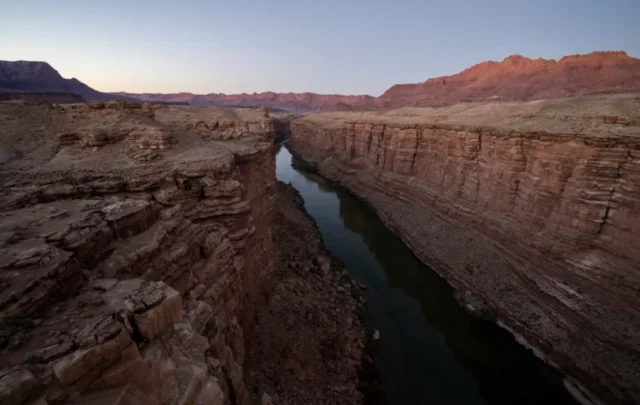Click on the headline (link) for the full text.
Many more articles are available through the Energy Bulletin homepage
Rural communities best equipped to cope with climate change: UN report
John Vidal, The Guardian
Rural communities which protect nature and exploit forests, wetlands and wildlife sustainably will be the best equipped to cope with the droughts and floods that will increasingly hit Africa, Asia and Latin America with climate change, says a new UN-backed report.
Nature-based enterprise, says the report from the World Resources Institute in Washington DC, offers the world’s 2 billion rural poor key survival tools to weather the extreme changes that are expected. It argues that communities must be given secure rights to access, manage and profit from, the natural resources they depend on daily and calls on governments and development agencies to scale up such approaches.
Supported by the UN Development Programme (UNDP), UN Environment Programme (UNEP) and the World Bank, the report, called Roots of resilience, urges immediate action…
(7 October 2008)
Climate change could force millions from homes
Reuters
BARCELONA, Spain (Reuters) – Environmental damage such as desertification or flooding caused by climate change could force millions of peoples from their homes in the next few decades, experts said on Wednesday.
“All indicators show we are dealing with a major emerging global problem,” said Janos Bogardi, director of the U.N. University’s Institute on the Environment and Human Security in Bonn, Germany.
“Experts estimate that by 2050 some 200 million people will be displaced by environmental problems, a number of people roughly equal to two-thirds of the United States today,” the University said in a statement…
(8 October 2008)
Climate change forcing animals to move up
David Perlman, San Francisco Chronicle
From the mountains of Yosemite to the tropical lowlands of Costa Rica, global warming is forcing animals and plants to move to higher and higher elevations, searching for climates that have allowed them to evolve and thrive for millions of years.
The exodus from less tolerable habitats to cooler and more benign environments has been taking place for nearly a century, according to scientists who scrambled over rocks and ridges, through steamy rain forests and up steep volcanic slopes to complete their painstaking surveys.
And in a few cases, the moves are taking a toll: Some mountain animals, left with smaller ranges to forage for food, may face extinction, while others are up against Darwinian competition as their new habitats intrude on already-established animal populations…
(10 October 2008)





